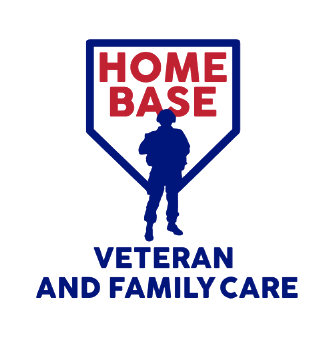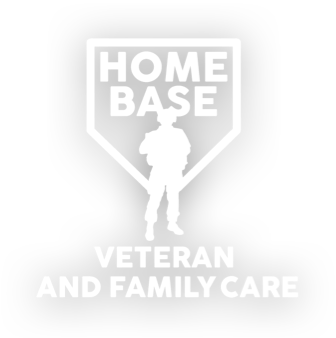Home Base Partners with New Mass General Center to Study Role of Psychedelics in PTSD TREATMENT
 As public perception of psychedelics begins to shift after decades of stigma, Massachusetts General Hospital has launched the new Center for Neuroscience of Psychedelics to better understand how these drugs may be used to improve the treatment of mental health challenges, including depression, anxiety and post-traumatic stress disorder (PTSD). The establishment of a Center nested within MGH’s Department of Psychiatry—which is consistently rated one of the top Psychiatry Departments in the country—is a moment the Boston Globe described as the culmination of a “long, strange trip to the mainstream.” As an official Massachusetts General Hospital (MGH) program dedicated to bringing healing and hope to the military community, Home Base is proud to partner with the new Center to explore the role that the broader implementation of psychedelic therapy may play in helping Veterans and Service Members heal from PTSD.
As public perception of psychedelics begins to shift after decades of stigma, Massachusetts General Hospital has launched the new Center for Neuroscience of Psychedelics to better understand how these drugs may be used to improve the treatment of mental health challenges, including depression, anxiety and post-traumatic stress disorder (PTSD). The establishment of a Center nested within MGH’s Department of Psychiatry—which is consistently rated one of the top Psychiatry Departments in the country—is a moment the Boston Globe described as the culmination of a “long, strange trip to the mainstream.” As an official Massachusetts General Hospital (MGH) program dedicated to bringing healing and hope to the military community, Home Base is proud to partner with the new Center to explore the role that the broader implementation of psychedelic therapy may play in helping Veterans and Service Members heal from PTSD.
Although psychedelics have been used in many cultures for thousands of years and were in fact heavily researched in the 1950s-60s, a cultural backlash in the 1960s halted research and development of these compounds for several decades. After compelling evidence suggested psychedelics could help bring about meaningful change and sustained relief for patients suffering from mental illness, that backlash is gradually diminishing.
“Mental illness is the leading cause of disability in developed counties,” said Franklin King, MD, Director of Education and Therapist Training and Instructor in Psychiatry at Harvard Medical School. “One of the biggest clinical challenges in mental health is ‘treatment-resistant’ patients—those who seek help, but do not improve despite medication and treatment. We still have much to learn, but initial clinical studies suggest rapid, sustained reduction of symptoms after a single administration of a psychedelic compound in a therapeutic setting.”
By leveraging MGH’s tradition of excellence, the Center will work to understand how psychedelics enhance the brain’s neuroplasticity, or capacity for change, to optimize current treatments and create new treatments for mental illness to ultimately render the term “treatment-resistant” obsolete. Psychedelic compounds—in particular psilocybin and 3,4-methylenedioxymethamphetamine (MDMA)—are the primary treatments the Center will work with to achieve this.
The Center’s initial work will explore psilocybin’s effect on rumination, a process which contributes to depression, anxiety and other mental illnesses, and the effects of MDMA-assisted when coupled with a mindfulness-based intervention on overall symptoms as well as social functioning in treatment-resistant PTSD, in partnership with Multidisciplinary Association for Psychedelic Studies (MAPS).
One of these initial studies will be facilitated by Home Base and several principal investigators from the Center. Through this study, 60 Veterans with PTSD will receive either MDMA-assisted psychotherapy or a novel program that combines MDMA-assisted psychotherapy with a mindfulness-based training program. A subset of participants will also receive neuroimaging. The purpose of the study will be to focus on the efficacy of the treatment—or whether MDMA-assisted psychotherapy can be optimized with the mindfulness component—as well as to explore psychological and neural mechanisms of change and recovery from PTSD.
“Despite the best efforts of psychotherapy, PSTD is very resistant to treatment,” explained Dr. Franklin King. “But I have seen people with some of the most significant PTSD that I’ve ever seen make meaningful recoveries from their trauma through psychedelic therapy. We hope this study will lead to advances in psychedelic therapy and shed light on the mechanism of action of this treatment, and how it might work to help Veterans heal from PTSD,” explained Dr. King.
Although PTSD is not exclusive to the military, Veterans and Service Members are more at risk of exposure to traumatic events than the average civilian population due to their frequent deployments to combat zones. It is estimated that 1 in 3 Veterans deals with an invisible wound of war including post-traumatic stress disorder (PTSD), traumatic brain injury, and co-occurring substance use disorder. Only half of those at-risk receive any mental health treatment, and if left unaddressed, these invisible wounds can lead to suicide.
While classic psychopharmacology is often focused on suppressing PTSD symptoms, psychedelics allow patients to shift their perspective. By allowing symptoms to be expressed, patients can work through their subconscious or fear-based memories—which is why the therapy that the Veterans will receive during their participation in the study is so important.
“The therapy—or integration—sessions take place after the medicine visit,” explained Dr. Franklin King. “This is a time for patients to process material that came up, which allows for further understanding. It’s critical because it’s not enough to just give someone the psychedelic and send them back out into the world without giving them space to process what came up. These sessions help to solidify the benefits, conclusions, and insights that came up during the actual medication session.”
“Home Base is the perfect place to test the effectiveness of this novel therapy. On the clinical side, we deliver evidence-based treatments for PTSD. On the research side, we are looking to optimize the current treatment, to try novel treatments based on new mechanisms, and to decrease barriers of care for those with PTSD and TBI,” said Kaloyan Tanev, MD, MPH, Senior Director of Research and Interim Chief Medical Officer at Home Base.
“Since 2009, Home Base has provided world-class clinical care and support, in addition to fitness and mind-body wellness programs for Service Members and Veterans who struggle with the invisible wounds,” said Home Base’s Chief Operating Officer, Michael Allard. “Partnering with the Center will enable us to combine the innovative work we are already doing with a potentially groundbreaking new treatment option.”
With military suicides up as much as 20% in COVID era, Home Base is more committed than ever to find new paths to healing, and proud to partner with the new Center in the “new age of psychedelics.” In medicine, the brain’s neuroplasticity—or capacity for change—makes healing possible. In a broader sense, that same capacity for change is what allows for innovation and, ultimately, progress.
This is a high-priority program with a need for additional funding. To learn how you can help, please contact Monica Collins mmcollins2@mgh.harvard.edu.
To learn more about the new Center for the Neuroscience of Psychedelics at Massachusetts General Hospital and the important work being done in this field by both Home Base and Mass General, please click here or listen to an episode of Home Base’s official podcast, Home Base Nation, featuring leadership at the Massachusetts General Hospital Center for Neuroscience of Psychedelics, including Director of the Center and Psychiatrist-in-Chief emeritus Dr. Jerry Rosenbaum, Founder of the Multidisciplinary Association for Psychedelic Studies (MAPS) Dr. Rick Doblin, and Massachusetts General Hospital Psychiatrist and Director of Education and Therapist Training Dr. Franklin King, and Home Base’s Senior Director of Research and Interim Chief Medical Officer at Home Base, Dr. Kaloyan Tanev, MD, MPH.


 Home Base
Home Base